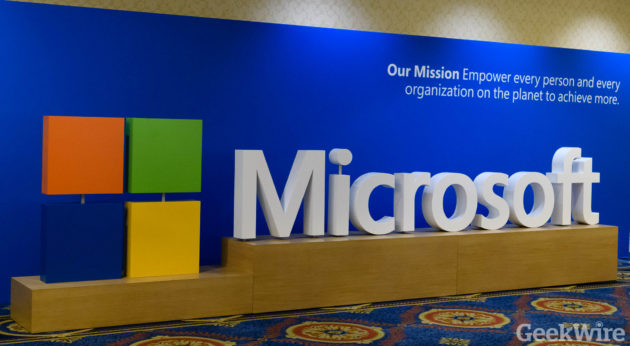
Microsoft is set for a Supreme Court face-off with the U.S. Department of Justice next month over the privacy of emails stored abroad, and some of the world’s biggest tech giants as well as elected representatives in the U.S. and Europe are lending support to Microsoft’s arguments.
Microsoft has over the last few days highlighted a series of amicus briefs, legal documents of support from parties not involved but with an interest in the court case, from tech companies, government agencies, trade groups, media organizations and academics. The briefs cover 289 individuals and companies in 37 countries in Microsoft’s corner.
The case centers around email from a Microsoft customer stored in the company’s Ireland data center. The dispute arose from a 2013 drug-trafficking investigation and deals with the question of whether law enforcement can gain access to a foreign user’s data stored by a U.S. company in a data center located abroad.
The case hinges on interpretations of the Stored Communications Act (SCA) as part of the Electronic Communications Privacy Act that Congress passed in 1986. The laws did not plan for the explosion of the internet around the world and the onset of borderless cloud computing as a primary means of storing information. The outcome could set a precedent for warrants aiming to access data stored by U.S. tech companies overseas.

Microsoft argues that extending the reach of such warrants internationally creates conflicts between the laws of different governments and makes it tougher to operate online services internationally. Microsoft also disagrees with the premise that emails are the property of the provider, rather than the customer.
“When the U.S. government requires a tech company to execute a warrant for emails stored overseas, the provider must search a foreign datacenter and make a copy abroad, and then import that copy to the United States,” Microsoft President and Chief Legal Officer Brad Smith wrote in a blog post. “This creates a complex issue with huge international consequences. It shouldn’t be resolved by taking the law to a place it was never intended to go.”
Microsoft and other tech companies have lobbied U.S. lawmakers to refresh laws governing the internet and data privacy to better reflect today’s technology capabilities.
“But only Congress has the authority and tools to rewrite the statute to strike a new, 21st-century balance between law-enforcement interests, our relations with foreign nations, the privacy of our citizens, and the competitiveness of our technology industry,” Microsoft wrote in a brief for the Supreme Court. “The current Congress has been considering multiple proposals to do just that—including one urged by the Government itself.”
Tech giants backing Microsoft include Amazon, Apple, Facebook, Google, Verizon, Reddit and more. Five U.S. senators and 10 Members of European Parliament. In their amicus brief, the tech giants argue that law enforcement agencies compelling companies like Microsoft to hand over information stored abroad is outside their jurisdiction, even though it wouldn’t take a physical trip to Ireland to get it.
“A warrant ordering one of amici’s American employees to fly to Ireland to retrieve data about a foreign user from a server located in Ireland, and bring that data back to U.S. law enforcement, would plainly be an extraterritorial application of the statute,” according to the brief. “The fact that amici have the technological capability to retrieve the same information about the same foreign user from the same foreign country and hand it over to U.S. law enforcement without an employee (or law enforcement) physically entering the foreign country should not lead to a different conclusion.
In 2016, an appeals court judge blocked a warrant to seize the emails, but the DOJ petitioned the Supreme Court to hear the case, a move Microsoft called “backward” at the time.
Two federal courts agreed with DOJ before the 2nd U.S. Circuit Court of Appeals last year sided with Microsoft and refused to rehear the case earlier this year. The decisions supporting DOJ interpreted the warrant as more like a subpoena. Law enforcement officers weren’t traveling to Ireland to physically confiscate evidence, so the location of the evidence was not relevant, those rulings concluded.
Oral arguments in front of the U.S. Supreme Court are scheduled for Feb. 27.



